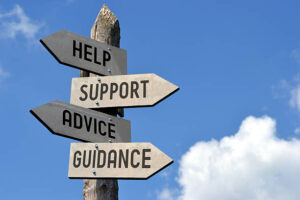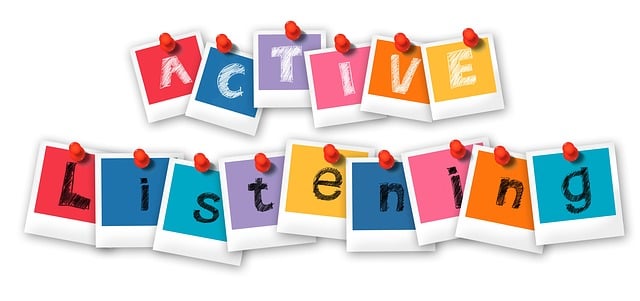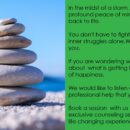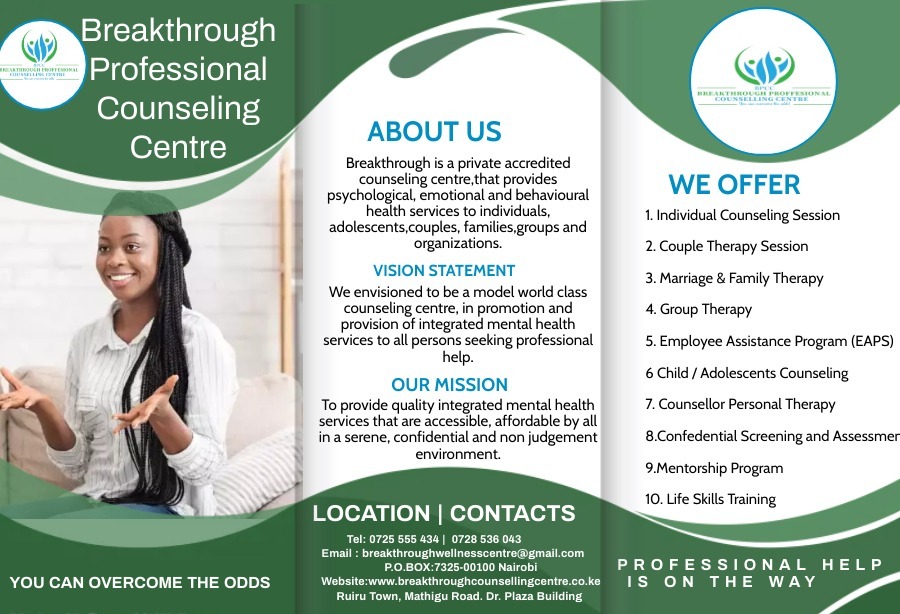Could You Be Stress Eating?

Did you know that eating while in distress could be a defense mechanism that is unhealthy?
Do you find comfort in food when dealing with difficult emotional situations?
Is food your escape?
All around the world, eating is an easy way to bring people together. You hold important board meetings around food and characterize your celebrations by eating together, family gatherings, religious meetings, corporate meetings, and even governmental proceedings.
BMC Psychiatry of Kenya surveyed the country and discovered that 3.2% of the population suffers from Binge Eating Disorders. A wide range of about 8.1% to 19% of people have Binge Eating Disorder related symptoms.
You associate eating with positive behavior and applaud a ‘good appetite’ while considering having a ‘bad appetite’ as a problem. You have extreme situations in both ‘good and bad’ appetites, gluttony, and starvation, but today the focus is on where you use food to deal with emotional distress.
WHAT IS EMOTIONAL STRESS?

Getty Images
It is a response or reaction to the pressures of our daily life. You can trigger it by a thought/memory, an event/a series of subsequent events, future anxiety, and what’s not within your control.
Emotional stress disrupts your normal feelings and behavior. With self-awareness, you can know whether you are stressed or not. Stress is associated with negative emotions like anger, worry, guilt, shame, sadness, fear, etc.
Telltale signs that you are stressed:
- You are irritable, angry/lashing out, and moody
- You are anxious and worried
- You are experiencing insomnia or oversleeping
- You feel overwhelmed
- Physical illnesses like headaches, stomach aches, bloating, nausea
- Lack of interest in activities that interest you.
- Extremely emotional, crying even when it is unnecessary
- Irrational thoughts like, everyone is out to hurt you
- Heartache
- Reduced productivity and difficulty in concentration
- Sadness and Depression
- Boredom
- Loss of appetite or overeating
You can share the signs of stress you’ve experienced recently in the comments.
STRESS/EMOTIONAL EATING

Pavel Danilyuk
It is when you use food to deal with stressful situations. You use it to soothe negative emotions and suppress them instead of satisfying your hunger. Eating becomes a response to those emotions or even boredom.
It is important to note that emotional eating happens with comfort food. These foods are easy to prepare or get, have high caloric content, high carbohydrate levels, and are associated with a good feeling.
It’s rare to find yourself feasting on vegetables, fruits, legumes, or healthy foods when stress eating. You tend to go for junk food with low nutritional value, like fries, burgers, deep-fried chicken, pizza, cakes, sugary drinks, processed meat, etc.
WARNING SIGNS THAT YOU ARE STRESS EATING

Istock photos
How do you know that you are stress eating?
- Eating when you aren’t hungry – Your snack has nothing to do with hunger. You do not eat to nourish your body. Your circumstance determines how you eat.
- Eating when you have nothing else to do – Have you ever found yourself relaxing at home, watching a movie, or even idling, and you eat twice as much as you do on a working day? That’s eating characterized by boredom and is used to keep you busy as you wait for the day to go by.
- Cravings – This is an abnormal desire for specific food items. It could be something spicy, sweet, savory, tangy, etc. You have to meet that need immediately, and it is for a specified time.
- Your feelings determine how you eat – When you are angry, sad, disagreeing with a loved one, feeling bad about yourself, ashamed, guilty, etc. You turn to food for a feel-good situation.
It is a coping mechanism as you reward your body for feeling bad. In ‘Kenyanese’ you say, ‘unapea mwili pole’ loosely translated to ‘you are apologizing to your body’ or ‘narudishia mwili shukrani’ loosely translated to ‘you are giving gratitude back to your body.’ All these mean that you are rewarding yourself for suffering/hard work.
Have you found yourself in any of these traps?
DIFFERENCE BETWEEN NORMAL EATING AND EMOTIONAL EATING

Photo: istock
Normal is triggered by hunger, while emotional is triggered by feelings/stress.
Normal eating is gradual, and hunger grows after some time, while emotional eating is immediate.
Normal eating allows you to eat different types of food, while emotional eating craves specific foods like fried foods, sugary foods, etc.
Normal eating happens after some time during the day, while emotional eating is continuous random snacking at different times during the day.
WHY DO YOU DO THIS?

Photo: Image Hunter
- Coping with difficulty – When something is out of your control, it is easier to go for what is within it. Eating will keep you focused on what is at hand and allow you not to think about what is out of your control.
- Escapism – People require responsibility. Relationships require hard work. Since you are unwilling to work on your relationships when things are tough, you go for what is tension free and will keep you comfortable. Food is quiet and will do what you want it to do.
- Poor self-esteem– When you feel bad about yourself, you eat to drown that feeling. It helps suppress unwanted emotions about who you are.
- Unprocessed emotions – There is a TV series called My 300-lb Journey. It is about people with certain eating disorders and their weight loss journey. As part of their journey, they work on their physical well-being but also see a psychotherapist to deal with unprocessed emotions, loss, grief, self-esteem issues, mental or physical abuse, etc.
Once that happens, they can manage their eating better and deal with food addiction. It happens over time as they walk the journey with the aid of the counselor and physician.
The majority of life-threatening eating disorders have very little to do with the ingestion of food that you need. It has more to do with your internal emotional needs.
5. Stuck at the oral stage – Sigmund Freud, a renowned psychologist, discovered five psychosexual stages of human development (oral stage, anal stage, phallic stage, latency stage, and genital stage). They occur in sequential order from when you were a newborn to adulthood.
The first one is the oral stage. In this stage, Freud says the mouth is the first pleasure point known to you. It occurs from 0 to about 18 months. Your mother breastfed you, and the reward was milk. For this reason, when you were a baby, you put everything in your mouth, assuming the pleasure point would give the same feeling. It is an unconscious behavior.
If you do not navigate the stage well, meaning you do not go through at least 12 months of feeding or go for more than 24 months, it may manifest as a fixation later in life. This fixation can come out negatively through eating, excessive chewing, drinking problems, etc.
Reflect on any other underlying reasons for stress feeding.
EFFECTS

Photo: istock
- Obesity – It is a condition caused by the excess accumulation of fat in the body. Consumption of junk food causes fat production and can put you at risk of contracting other diseases.
- Eating disorders – Emotional eating can quickly escalate to overeating which could bring with it some eating disorders like, Binge Eating Disorder and compulsive eating.
- Physical illnesses – Illnesses like type 2 diabetes and high blood pressure could be imminent if you are not careful.
- Shame – As you continue feeding, you may be ashamed of yourself for your food ingestion rate. Potentially leading you to hide food, have meals when no one is present, to avoid being mocked or questioned about how you eat.
- Low self-esteem – All these effects will affect your self-worth. You will not be happy with the person you see in the mirror, especially when you know you could have done something different.
- Food addiction – If you don’t control it, addiction may be impending. Food addiction is usually associated with emotional eating. It is because you use food for the wrong purpose.
HOW DO YOU END THIS BEHAVIOR?

Image: Ketut Subiyanto
- Face it – Face yourself, your choices, and your feelings. Deal with and process them. You can do this by allowing yourself to have negative emotions at times because they are a part of life. It is normal to have stressors as long as you live. Running away from them is not a long-term solution. It is a temporary escape that may be affecting your long-term health.

Image: istock
- Seek help – Do not do this alone. Reach out to your support system, psychotherapist, doctor, etc. To find out your problem and chart a way forward with you. No man is an island, so ask a professional for guidance, support, and external accountability.
- Beware of times when your food consumption is for the wrong reasons. A problem realized is a problem half solved. When you know the why behind your eating, you will make the necessary steps to deal with that if you see a problem. Be careful not to harm yourself unintentionally through emotional eating.
To sum up,every human being has stress eaten at one point in their life or the other. Therefore you can conquer this.
It is a choice to be conscious of your actions and be aware of the potential long-term consequence of fulfilling emotional needs with food instead of getting the help you need for your mental, emotional, and psychological well-being.
You can overcome the odds. Help is on the way.
About the Writer,

Sheila K. Muli
Counselor, Speaker, and Trainer











Insightful Article
It is my pleasure to share with you
Nice article.
Thank you. Looking forward to giving you more.
This is very informative. I didn’t know it’s that bad. Thanks so much Sheila. Imeweza kabisa.
Karibu. Yes, it is potentially bad if you are not keen. the great news is that it is within your control to work on it.
Very informative. I know for a fact that this relates to me, anytime I am stresses I think of pizza, cakes and burgers….This is a problem and needs to be addressed. Thank you for the article.
You are welcome. This is because it makes you “feel good”. As you keep learning be careful not to use that to run away from your emotions.
Awesome informative read.
Thank you. Stay tuned for more articles.
This is such an insightful read 👏👏
It is a breathe of fresh air seeing that you gained insight from it.
[…] defined stress in my previous article on stress eating. Let’s look into chronic stress today and the biological […]